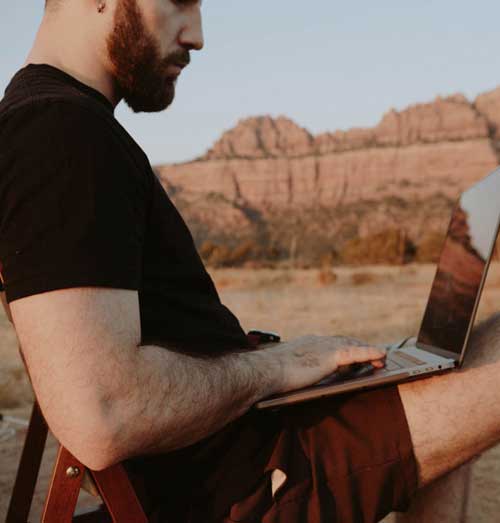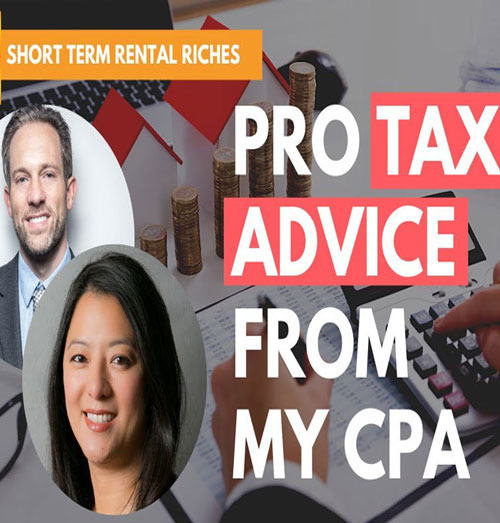212. Perfecting Your Mid-Term Rental Guest Screening, Payments, and Lease Agreements (Part 2)
Welcome to the Short-Term Rental Riches, in this second installment of our three-part series, we focus on the critical steps you need to take after receiving an inquiry for a longer guest stay.
In the first part of our series, we explored strategic listing placements and optimized copywriting to attract longer-term guests. Now, as inquiries start rolling in, we shift our focus to the meticulous process of running tenant background checks. The transition from guest to tenant varies across states, typically kicking in after 28 days. Now, it’s time to change how you manage things. Property owners need to handle longer stays with the same care as they do for long-term leases. Buckle up as we guide you through securing your property, from checking guest reviews to running comprehensive background checks.
In this episode, you’ll learn:
- Strategic Background Checks
- Crafting a Comprehensive Lease
- Payment Processing Strategies
- Deposit Dilemma
- Lease Highlights and Communication
As we wrap up part two of our three-part series, you’re now equipped with the knowledge to navigate the landscape of medium-term rentals. From background checks to lease agreements and payment processing, every step is a vital piece in ensuring a seamless and secure experience for both hosts and tenants. Stay tuned for part three!
If you found this episode helpful, don’t forget to like, share, and subscribe for more expert insights. Connect with us on our website, strriches.com, and let us know your thoughts and questions. Here’s to turning your properties into thriving medium-term rentals!
Need help managing your short-term rental and you don’t want to go it alone? Shoot us a message here and we’ll see if we can help.
Are you enjoying the podcast? Please subscribe, leave a rating and a review, and share it! This helps us reach others that may find the info helpful as well.
You can find all of our links here including our recommended resources, short-term rental playbook, Instagram, and more!
Click Here to view TranscriptNormally on this show we talk about short-term rentals, hence the name short-term rental riches, right? But in a lot of my personal portfolio and a lot of our listeners’ portfolios or properties, we’re now starting to take medium-term reservations, right? And so, this is longer, these are monthly, for example, and there’s a lot of differences in the way we need to manage these properties. So, this is part two of our three-part series. The first part we talked about what we need to do to make sure we’re attracting the right people and where to attract them from, so where to actually put our properties, where to list them. This week we’re talking about running tenant background checks, where to get a lease specific to our estate, also what to include in that lease, how to take payments and how to take deposits, or to potentially do a deposit waiver. So, stay tuned as we jump into part two of our medium-term rental series.
Welcome to short-term rental riches. We’ll discuss investing in real estate but with a specific focus on short-term rentals. Quick, Actionable items to Acquire, Manage and Scale your portfolio. I’m your host Tim Hubbard.
Welcome back to the short-term rental riches podcast. I’m happy you’re here again. We’re talking about medium-term rentals this week, and this is actually the second part of a three-part series, so if you missed episode 211, go back and check that out. We broke down all the places you’re going to want to list your short-term rental to attract longer guests. We talked about your actual listing copy, what you want to put in there to attract longer-term guests. We talked about streamlining some of your messages, knowing that not a lot of our short-term rental software can accommodate medium-term stays. It’s just sort of a different animal, right? We need leases and things like that. So go back and check out episode 211 if you missed that.
This week, we’re getting into what we do after we get an inquiry, and these reservations are different, right? Remember, they’re much longer, and most of the time, our guests are turning from a guest into an actual tenant in our property, so that varies state by state. You want to make sure you look up your state regulations to find out what it is in your local jurisdiction, but most of the time, that can be anywhere from 28 days plus. That means if a guest stays in your property for 29 days, or 28 plus, then they actually become a tenant, and they actually have tenant rights, which could get you into a bad place if you don’t have a good tenant in your property. So, we’re in this weird sort of reservation length period where we’re really managing a long-term tenant, even though it feels like a short-term tenant. So, to protect our properties and to make sure that we’re not overlooking anything, we need to treat these guests as tenants. That means we need to do background checks, we need to have some sort of deposit in place or a deposit waiver, we need a lease. So, the first thing is we need to run a background check on our guests with one potential exception on the way I manage my properties or my team and I manage all of our properties, and that would be through Airbnb.
So, Airbnb does have some protection that other listing sites do not, right? Booking.com does not have the same protection as Airbnb. And so, if you get an inquiry, if you get a reservation from Airbnb, definitely make sure that you check the reviews. We wanna do this regardless of the reservation length, but I would say if someone has zero reviews, that would make me a little worried. Our team, for example, is not accepting anyone with less than two reviews and good reviews. And so, we have the ability to deny guests if we’re accepting inquiries, right? And most of the time when we’re trying to run our properties for a longer period of time, we’ve switched them to inquiries. So definitely make sure that you’re looking at the reviews for any inquiries that come across and that you are not overlooking anything, right? If anything seems fishy, make sure to ask some more questions. If this was an instant book, well, remember, you can have those reservations canceled if you are concerned about the safety of your property or if there’s lack of communication or something like that. Make sure you really investigate those listings. You don’t let just anyone stay in your property.
Now, for everything outside of Airbnb, so we talked about VRBO and booking.com and Furnish Finder, if you happen to be on there, apartments.com, which also syndicates other listing sites like corporaterentals.com, for example. All of these other sites, I’d highly recommend doing some sort of background check, right? Ideally, doing actual credit background and a criminal background check. To me, the easiest place to kind of manage all this together is through apartments.com because we’re gonna wanna have a lease as well. I’m gonna get to that in just one second, but we can use apartments.com’s rental manager to have a potential guest automatically run a background check on themselves. So, what does this look like? If you get a reservation inquiry from VRBO, for example, let’s say it comes across your property management software, well, you’re going to wanna copy a link from apartments.com where you also have your property listed, copy that link and send it through your property management software back through VRBO to run the credit check that way.
Now, there’s also some other programs like SuperHog you may have heard of that can do a background check, but it’s not doing a fully extensive background check like apartments.com, for example. So, make sure that you’re running a background check on all of your guests before they stay in your property. We’re using apartments.com rental manager to help facilitate that. Again, at least at the time of this recording, unfortunately, there’s not a short-term rental specific program out there that’s also handling all of these long-term type things. So, we sort of have to do the best with what we have, right? So, make sure you’re getting a background check and you may want to go further than this, right? You may want to get proof of income, right? This is something we do traditionally in the long-term rental world. So, asking for two recent paychecks, for example, if this is a traveling nurse, well, they’re usually going through some verification. So, you may not require that from them, but this is one other extra step of protection. You may want to ask for a reference from a prior landlord. That’s a pretty easy one to do, right? When you run these background checks, they do charge you. So, I would recommend that you just charge the guests. This way, you also know that it’s a serious guest as well, that they’re actually serious in your property. Most of the time, these are like $29 to run a background check. Again, we’re using apartments.com, but if you’re using Furnish Finder, for example, they also have what they call KeyCheck. It’s another option that’s sort of built in or integrates with Furnish Finder. So, let’s say we got past that part, right? We properly listed our property on multiple different platforms. We got some great inquiries. We ran a potential background check or we had the guests do it themselves. Remember, we can just send the link to them.
Now we need to move on to the lease stage, right? We definitely want to have a lease for anyone that’s considered a tenant in our property. This is just standard property management 101, right? Because if you don’t have a lease, well, then you’re not really protected and you don’t have rules essentially for your property. So, you can go to places like biggerpockets.com. $99 can get you a lease for pretty much any lease, no matter what state you’re in. If you happen to be a realtor, you happen to be friends with the realtor, a lot of times they have those in the National Association of Realtors. Documents, you might ask a friend to give one to you, but we want to make sure that our lease is set up, of course, for our property. It has the terms of the reservation in there. After the lease expires, remember, these aren’t usually long-term leases like annual leases. So, I recommend that you just keep it month to month. A lot of these types of guests that we’re getting might be displaced because of insurance. Maybe they’re working on their property and they need additional time. If it’s a traveling nurse, a lot of times they go from three months, maybe they add on longer stays after that. So, it’s nice to have that availability for them, but of course you want to make sure that that’s outlined in your lease, as well as your cancellation policy. So, if they cancel, again, I recommend a strict cancellation policy. You want to outline all of your utilities there. So, most of the time we’re covering all of these, right? But maybe you have a property where the gas bills can just be outrageous and you don’t want to be spending more than $1,500 a month. You can outline in your lease that says, we’ll happily cover utilities up to $1,500 a month or whatever it happens to be. Do you cover internet? Are you covering the trash service? Is there snow removal where you happen to be? All of these little things you want to really think through and make sure you have in your lease. Once you edit your lease or add an addendum to your lease, which basically is an additional page at the very end, then you don’t need to do this again, right?
So, we only have to think through this once for this specific property and then we can use this every time going forward. You’re going to want to outline things like pets. Do you allow pets? Again, we have these in our short-term rental reservation house rules as well. A lot of things that we have in our house rules as short-term rentals, we’re going to want to pull those over and have those in our lease too. So, what types of pets do you allow? How many pets do you allow? One thing I’d recommend is not allowing any flammables in the property or glitter, things like that, that are just a total nightmare for housekeeping.
I’ve dedicated years and hundreds of thousands of dollars through trial and error to figuring out how to manage my personal portfolio remotely. And it wasn’t always easy and it took a long time, but now my amazing team can professionally manage my properties without me. And good news, our team can also manage yours. Let us save you the stress and headaches and some money by offering you an industry low fee. To find out more about partnering with us, head to strriches.com, hit the property management button, answer a couple of quick questions and meet with me personally. That’s strriches.com. Rest easy knowing that with my team, your properties will be in excellent hands.
I’ve been kind of studying up a lot on this medium-term space. And so, I’ve just pulled some recommendations out of some random places, but one that I heard you might want to consider is that you’re not responsible for maintenance items less than $10. I know that sounds kind of weird, but if a tenant, remember they’re a tenant at this time, wants to change a light bulb and they need to know if that’s their responsibility or yours, if there’s not a spare light bulb at the property. And so, if you have to end up sending a handyman out to change the light bulb, maybe this property is in an area where you’re not, that can be really expensive, right? So maybe you want to outline some of those small little things so you don’t have service calls out there for nothing. Another thing that we like to do is have what we call an ammo box. So, we’ll leave spare light bulbs, we’ll leave spare batteries, but you’ll want to outline how much of this you leave in there. How much of your supplies are you leaving up front? So how much toilet paper are you leaving? How much shampoo, conditioner, all these types of things. We want to make sure we have in our lease. And leases can be a little complex, it can be long.
So, I highly recommend before your guest actually moves in that you have a summary that you send to them, right? We’re going to talk about payments here in one quick second, how they can pay, where they can pay in deposits, which is also going to be included in our sort of summary, but you want to really pull the highlights out of the lease knowing that a lot of people aren’t reading anymore. And if you’re sending this in a digital signing service like DocuSign or WeSignNow, that a lot of times your guests aren’t reading, so come up with a little summary page and have it there so it’s highlighting the most important points.
Another thing that you’re going to want to have in there is your right to inspect in the property. And so, when a guest becomes a tenant, they have tenant rights, right? You can’t just storm into the property. And so, I recommend putting that in there, maybe putting the hours in there too. We have the right with 24-hour notice to inspect between 10 and 5 p.m. One other thing that you might want to consider having in as just a safety precaution is a mandatory cleaning. And so, we have this in our lease agreement that says on or around the 15th day of your first month, we’re going to have our cleaner clean the property and there’s a charge for that. It’ll be taken out of your deposit or it’ll be charged with one of the options that I’ll tell you here in just a sec. This gives us the opportunity to make sure that they don’t have four dogs in the property when they’re only supposed to have one or that there’s not some sort of damage happening and that they’re really taking care of the place. 15 days is a pretty good amount of time to see how someone’s treating your property. And so, this is part of the goal, but we can also clean the property at the same time, right? We’re going to be doing that. We’re not touching their personal belongings, for example, but we’re gonna change the sheets and do a lot of the normal turnover things that we would. This is also a good opportunity to share your housekeeper’s contact with your long-term guests in case they want more cleaning in the future. Because remember, if we’re working with housekeepers and they only have a turn with us every three months, not a lot of work for them. So, this is a way for them to earn a little bit more money at the same time. So, you might want to consider that as well.
Okay, on to payments. So, we got a great guest or tenant. We ran their background check. We sent them a lease using a digital sign service, hopefully like DocuSign or Sign Now, or I think there’s another one called Hello Sign. And again, we include these links in our messages that we send through our property management software platform, right? The same platform that we use for short-term rentals. We’re gonna pull these reservations over and put them in there so we can manage them and set up all of our auto messages the same way we would as if it was a short-term rental.
Okay, so now we want to collect payment before the guest stays, obviously, right? So, there’s two ways we might do this. If you have your own direct booking site, which is already set up on Stripe, well, you can take credit card payments. And this is a benefit for a lot of people. So, you can have that option. But if you’re gonna accept ACH payments, which I highly recommend as well, I’d recommend using apartment.com’s rental manager because you can add your lease there. You can route those payments, whatever bank account you want. It can automatically send out late notices. You can set it to send reminders to your tenant. And they can easily pay through apartment.com’s rental manager portal. You can also include things like late fees and stuff like that in there. So those are really the two options. Those of us in the short-term rental space, a lot of us are using Stripe already. So, we can use that as a credit card option. If we’re going the ACH route, I suggest apartment.com’s rental manager for that. One other note here, if you’re going to use the credit card option, well, make sure you charge a credit card fee too because they’re charging you very likely 3%. You don’t wanna give away 3% of a $5,000 reservation, $10,000 reservation, $15,000 reservation, whatever it happens to be. That’s something you can easily charge back to the guest as well. So, we have a couple ways to easily accept payments regularly without having to remember when they’re due.
The next thing that we really have to keep an eye out for are deposits. And so, in the long-term rental space, it’s very common practice to charge first and last month’s rent, for example, for a deposit. That might deter quite a lot of our short-term guests. Remember, we’re kind of in this little limbo period. So, if you’re going to charge a deposit, make sure that it’s big enough to actually protect you and deter a guest from maybe not taking care of your property. The other alternative that we have is to use a deposit waiver program. And so, there’s a company called Generali, for example. There’s another one called Safely. There’s another one called Wavo, where you can pay to protect your reservation as a landlord, as an owner to one of these companies. It protects your reservation. You can charge this back to the guest as well. So, if it costs you $100, well, then you can charge the guest a deposit waiver fee, and then you have protection on the back end. And so, depending on how much you spend for the protection determines how much protection you have for your property. So, the more protection you have, the higher that insurance is. It’s essentially assurance for your reservation. And so, this can be a really good way too. That way you’re not juggling the deposit, determining how much you need to get back, or if you need to hold it, or whatever it happens to be. And so that is a good route. Those are your two options there. Either charge a deposit, which again, you can do with apartment.com’s rental manager, or you can do that with Stripe if you’re taking the credit card option, or use a deposit waiver. Those are kind of the two options there. So that’s kind of it in a nutshell for part two.
So, the first part of our three-part series was about making sure we set our property up perfectly to attract the guests and the tenants we want. The second part is all about making sure that we don’t get a bad guest in our property. So, verifying the reviews, running a tenant background check, asking for additional information if we need to, getting a state-specific lease, making sure that it really fits our property. Most of the time it’s gonna have all of our general house rules added on there in the form of an addendum and probably some other things like information on utilities, so on and so on. And then the deposit piece. So, this is quite a bit going on here, and what we’d like to do is to create a welcome message for our guests that has this summarized where they can pay, where they can submit a maintenance claim, all of these different types of things.
Now remember, we’re taking our reservations out of Furnish Finder or out of apartments.com if we happen to get one over there, and also putting those back into our short-term rental management software. So, there’s sort of two listing sides, right? There’s the traditional short-term rentals, which makes it a little bit easier with all the messaging, and then there’s the non-traditional where we can still get good guests or tenants stay in our property, but we’re gonna have to manually bring some of that information back in. So, I hope that helped. There is quite a few things that have actually come up during a long-term guest reservation though, so stay tuned in part three. We’re gonna cover all of that, and we’re also gonna put together a handy dandy little e-book for you at the end of this. I will save a link in the show notes to let you know where you can find that free, of course, to kind of wrap up this three-part series, but stay tuned. Part three, we’re gonna talk about actually managing our midterm guests. Until next time, I hope you have a fabulous week.
Whether you’re just getting started with short-term rentals or you’ve been in the game for a while, one thing remains the same. Your management can make or break your performance. Our team has learned a lot managing thousands of guests, and we’ve put together a handbook just for you with our checklist to cover our exact process. There’s a lot to consider, from verifying guests to managing reviews, and you don’t want to miss a step. You can get your free copy by going to restmethods.com. There’s no charge. It’s my gift to you for being one of our loyal subscribers, and I hope it helps you earn higher returns with less headache.
Thank you.















